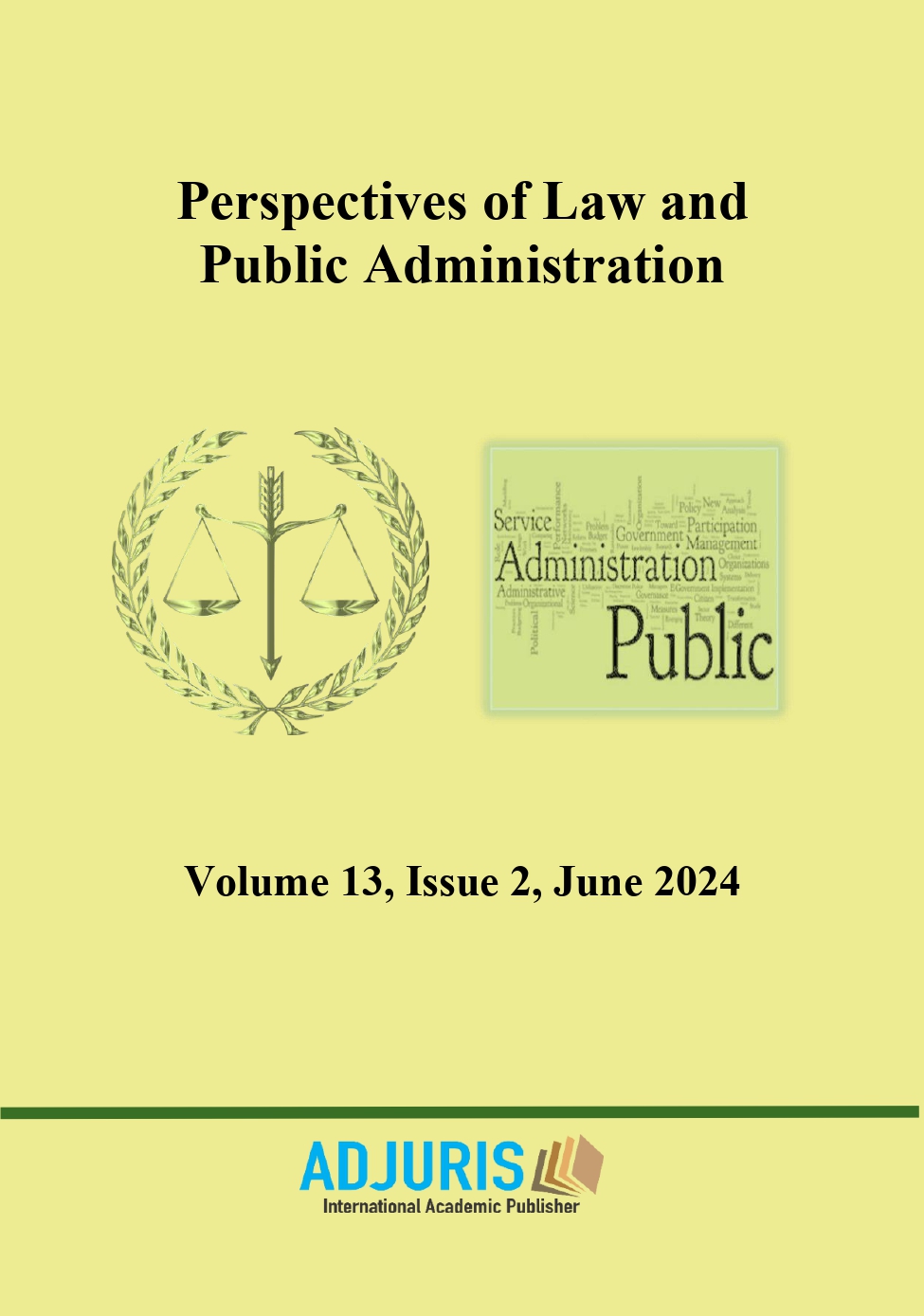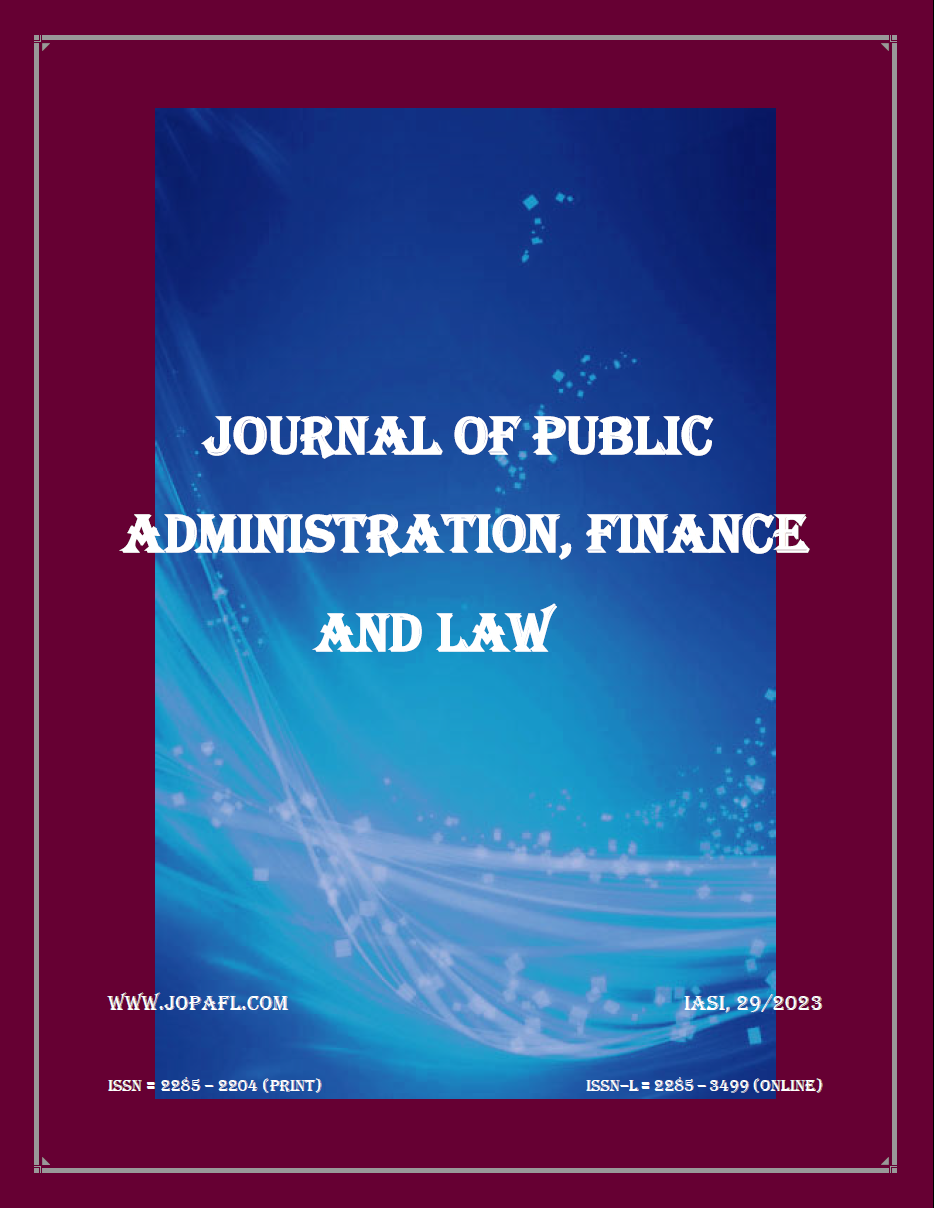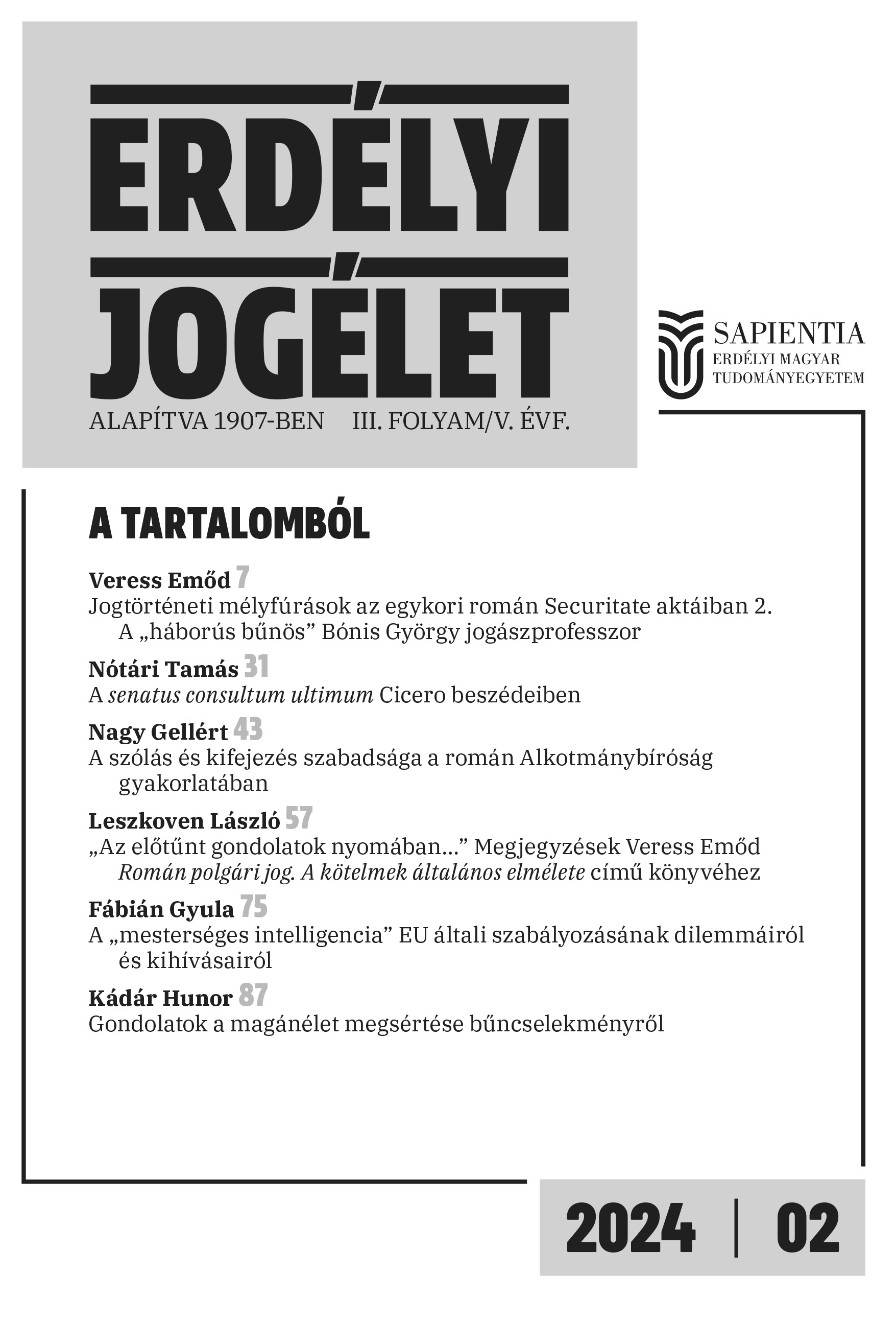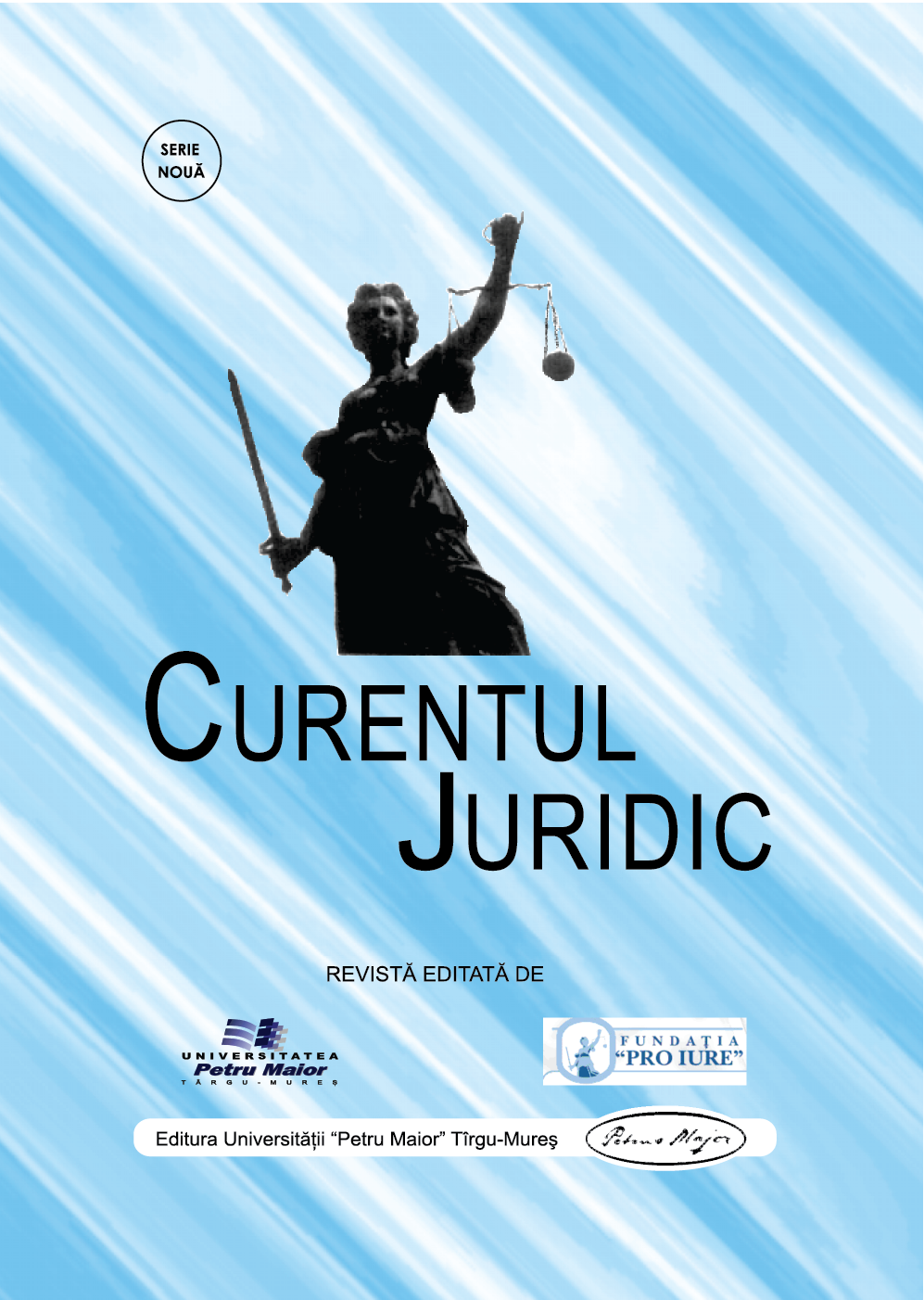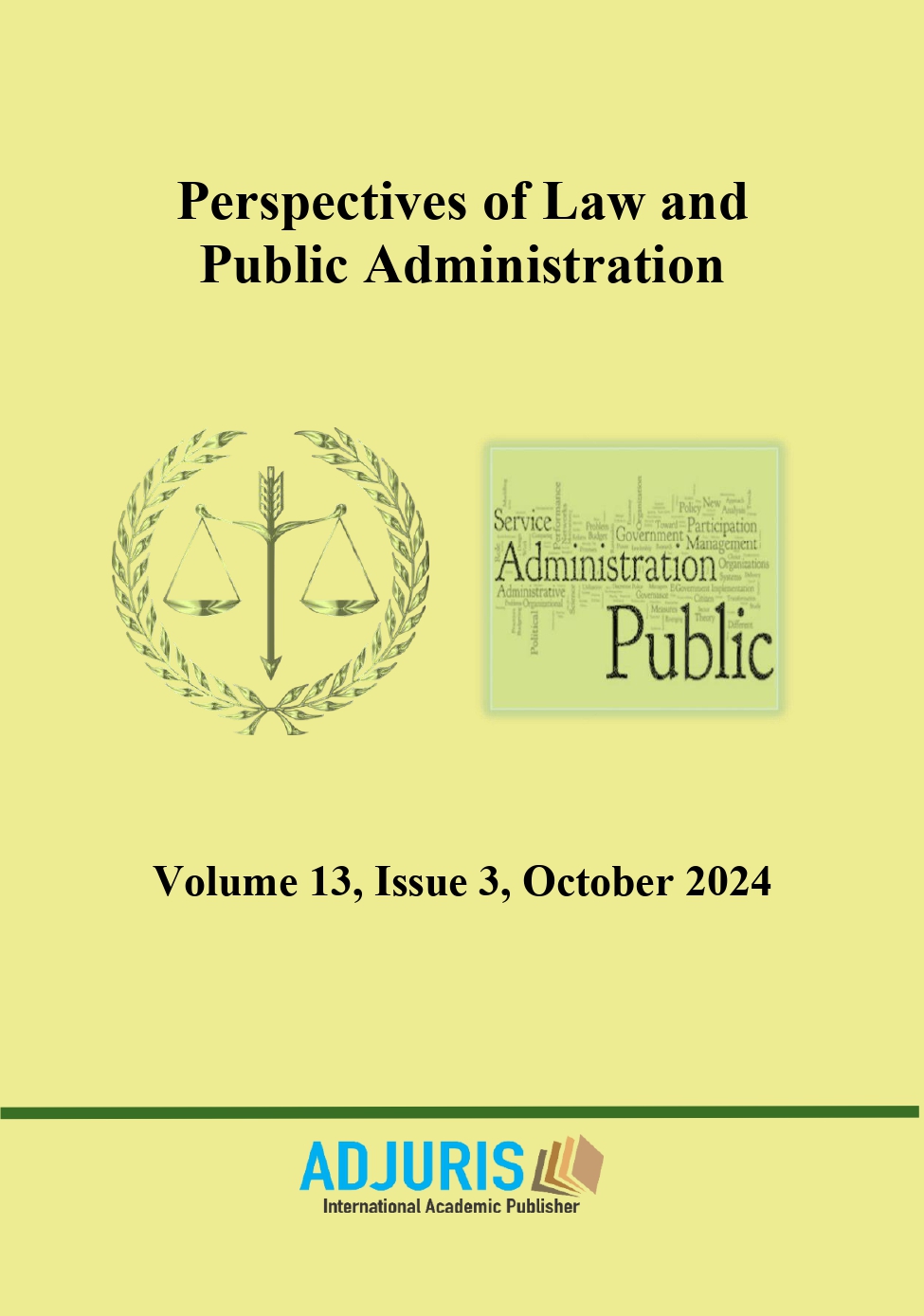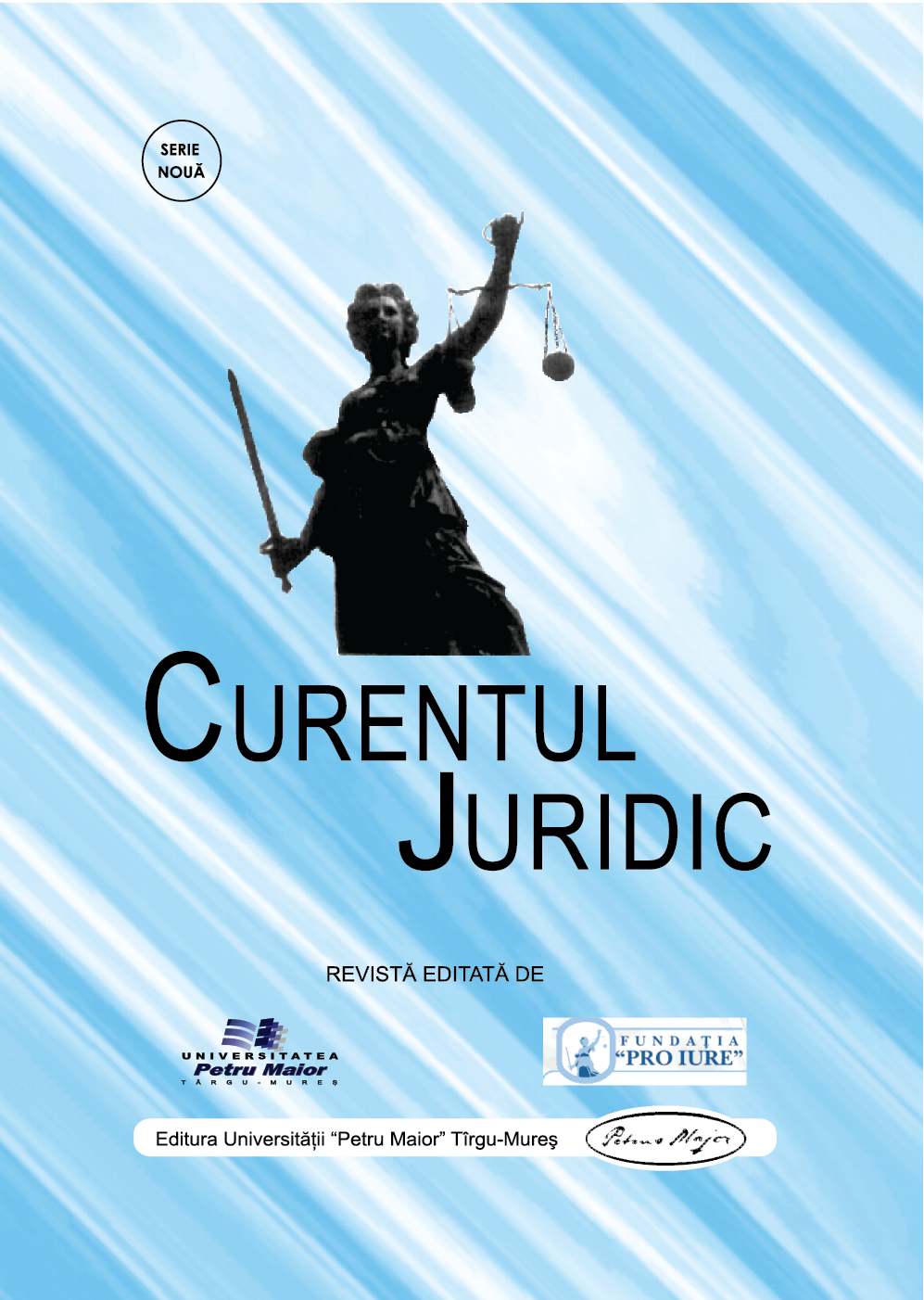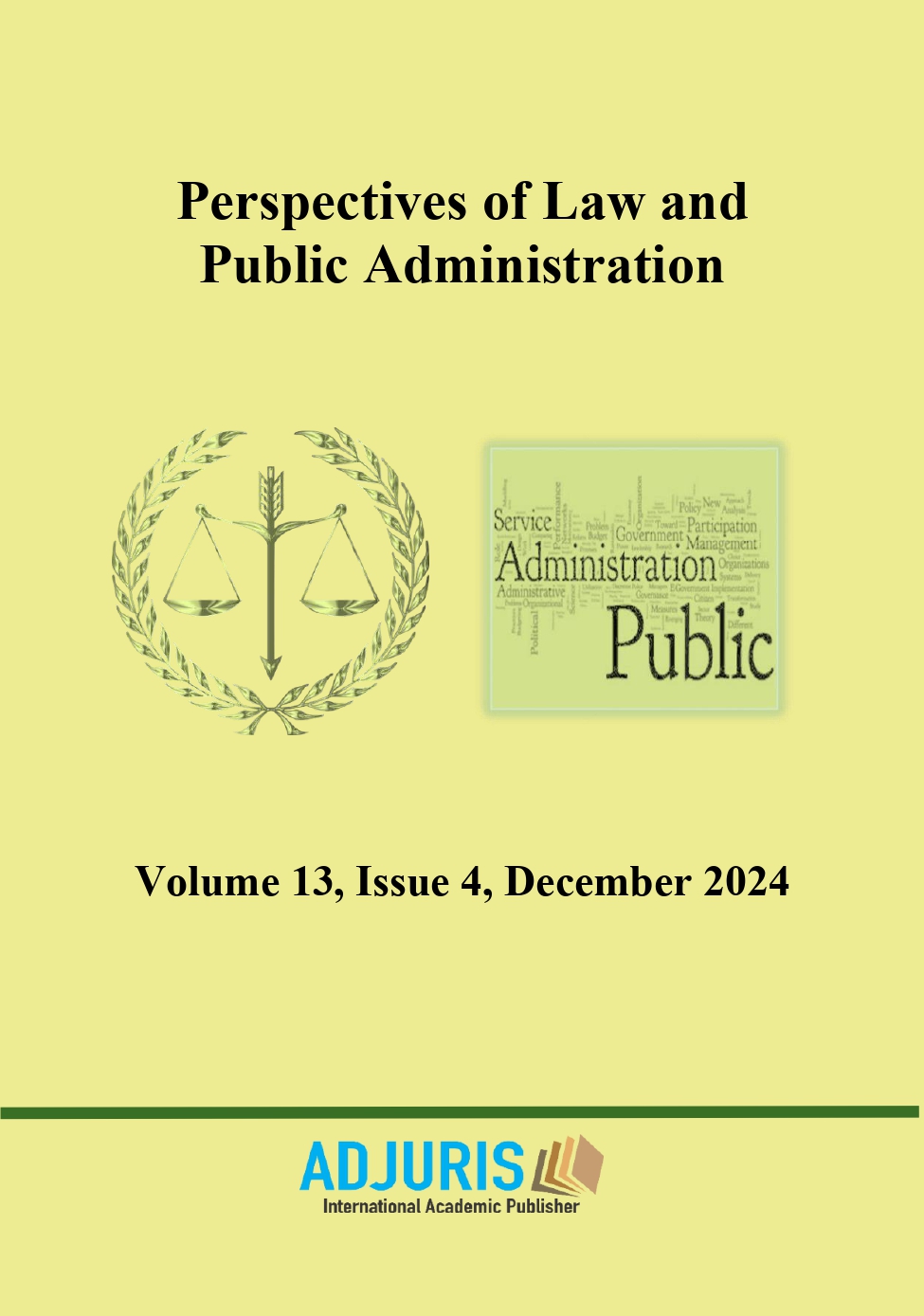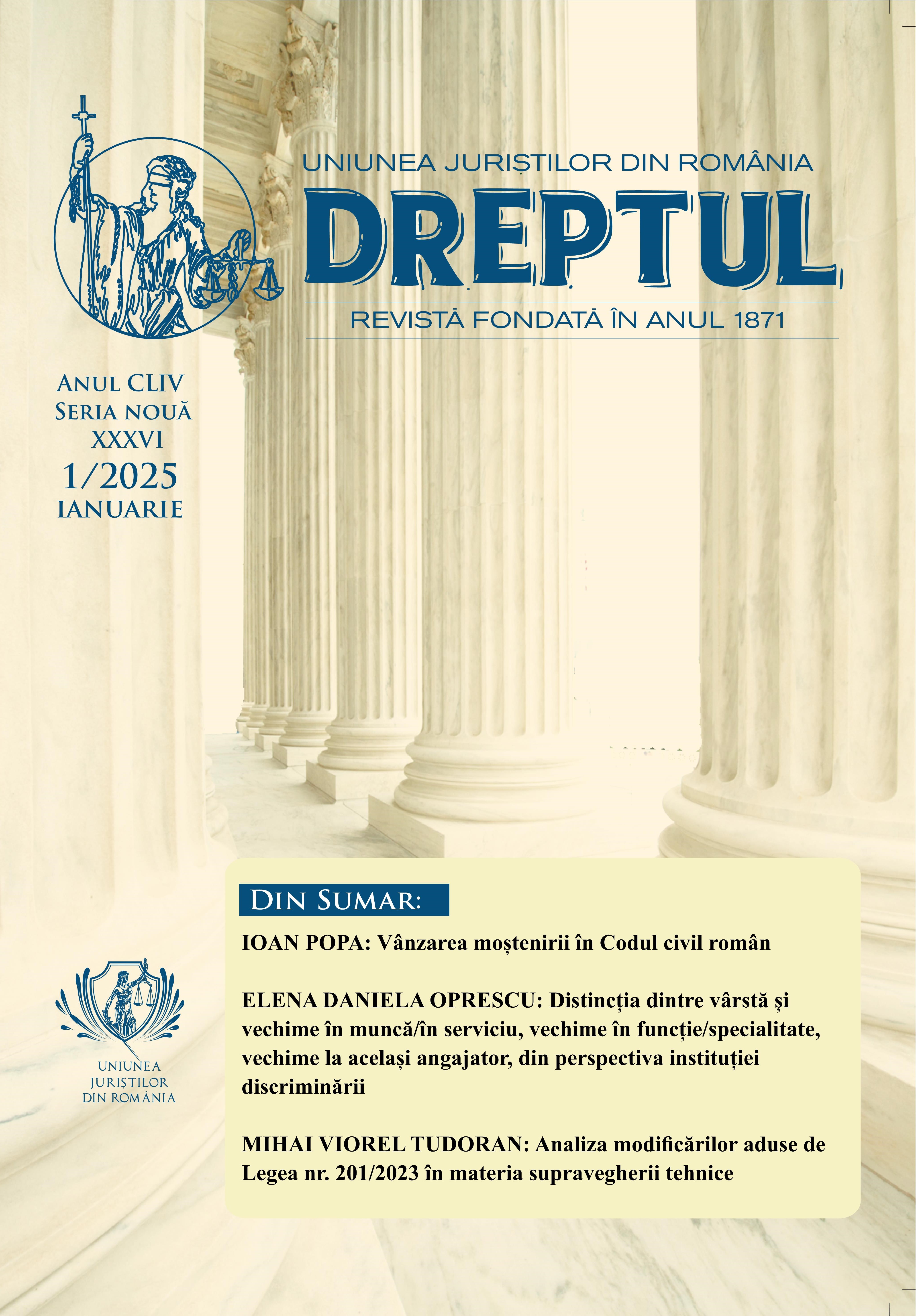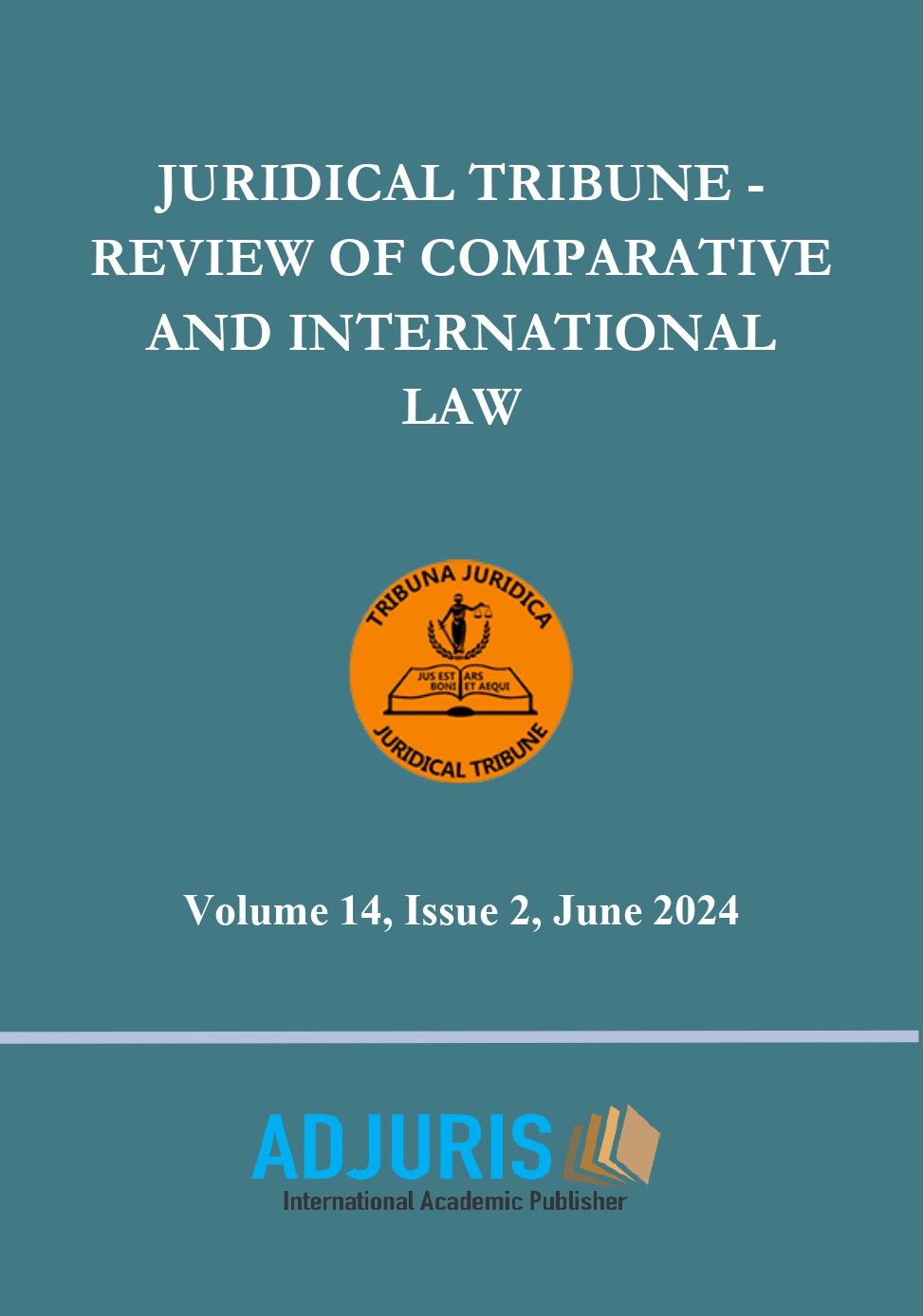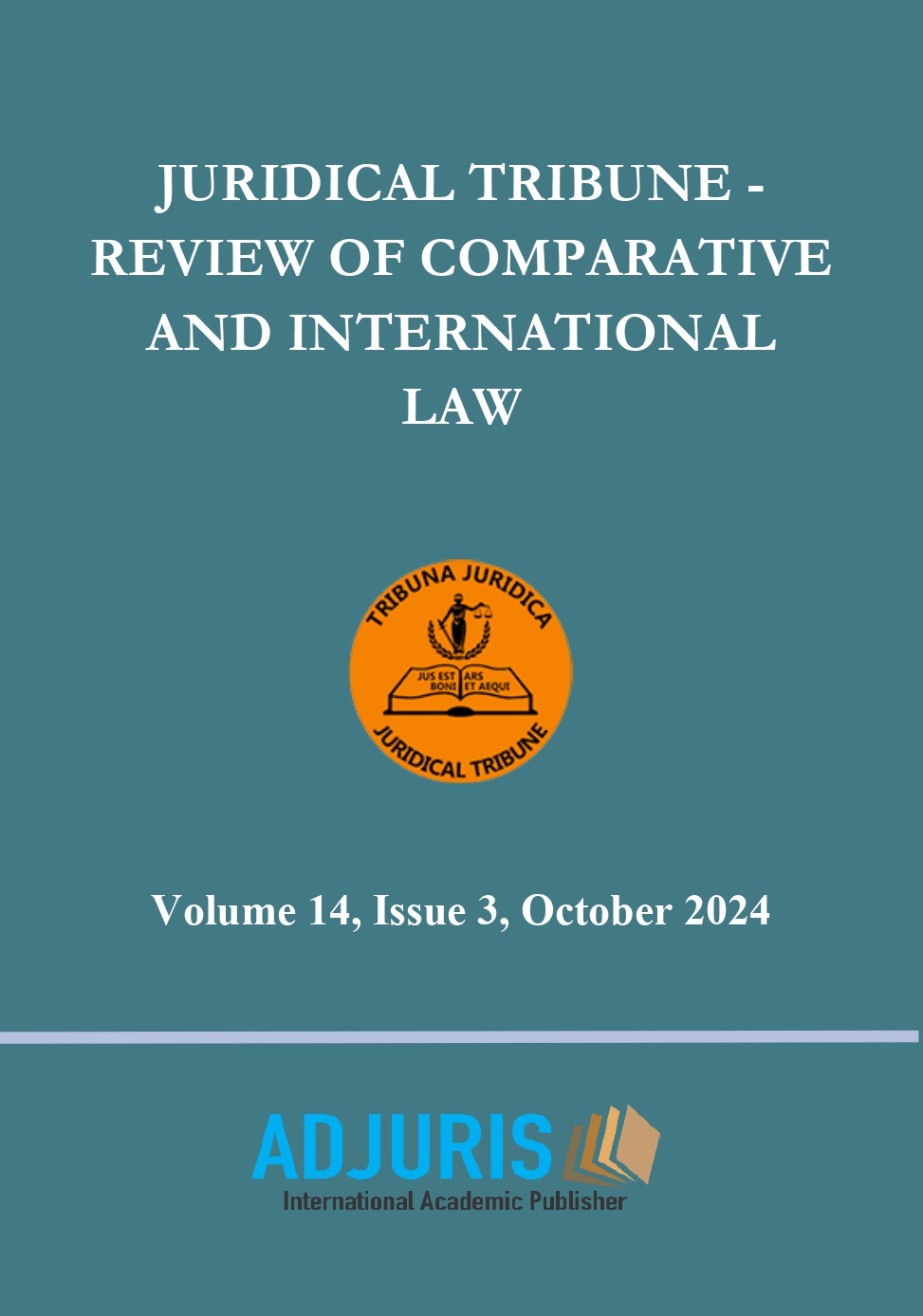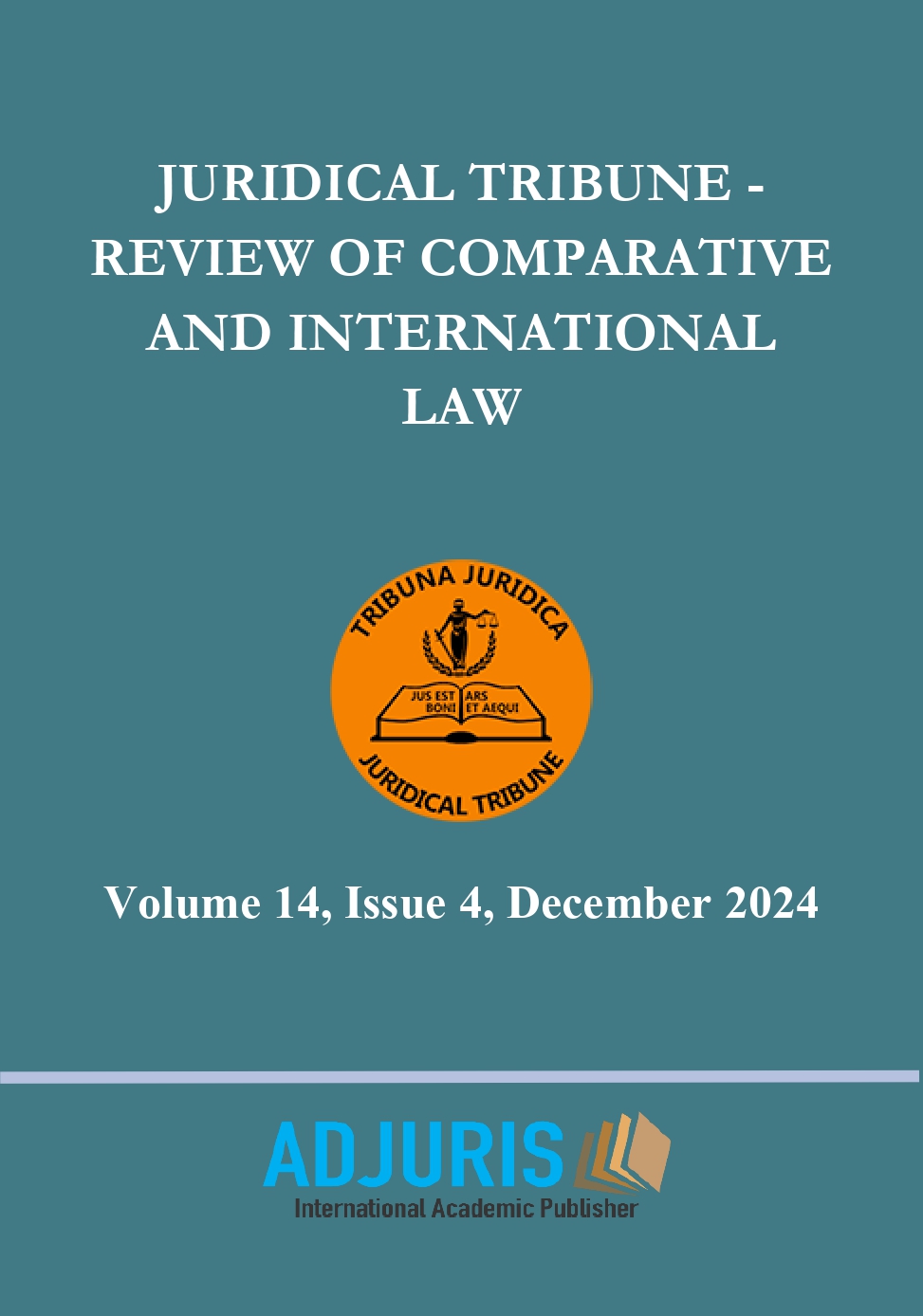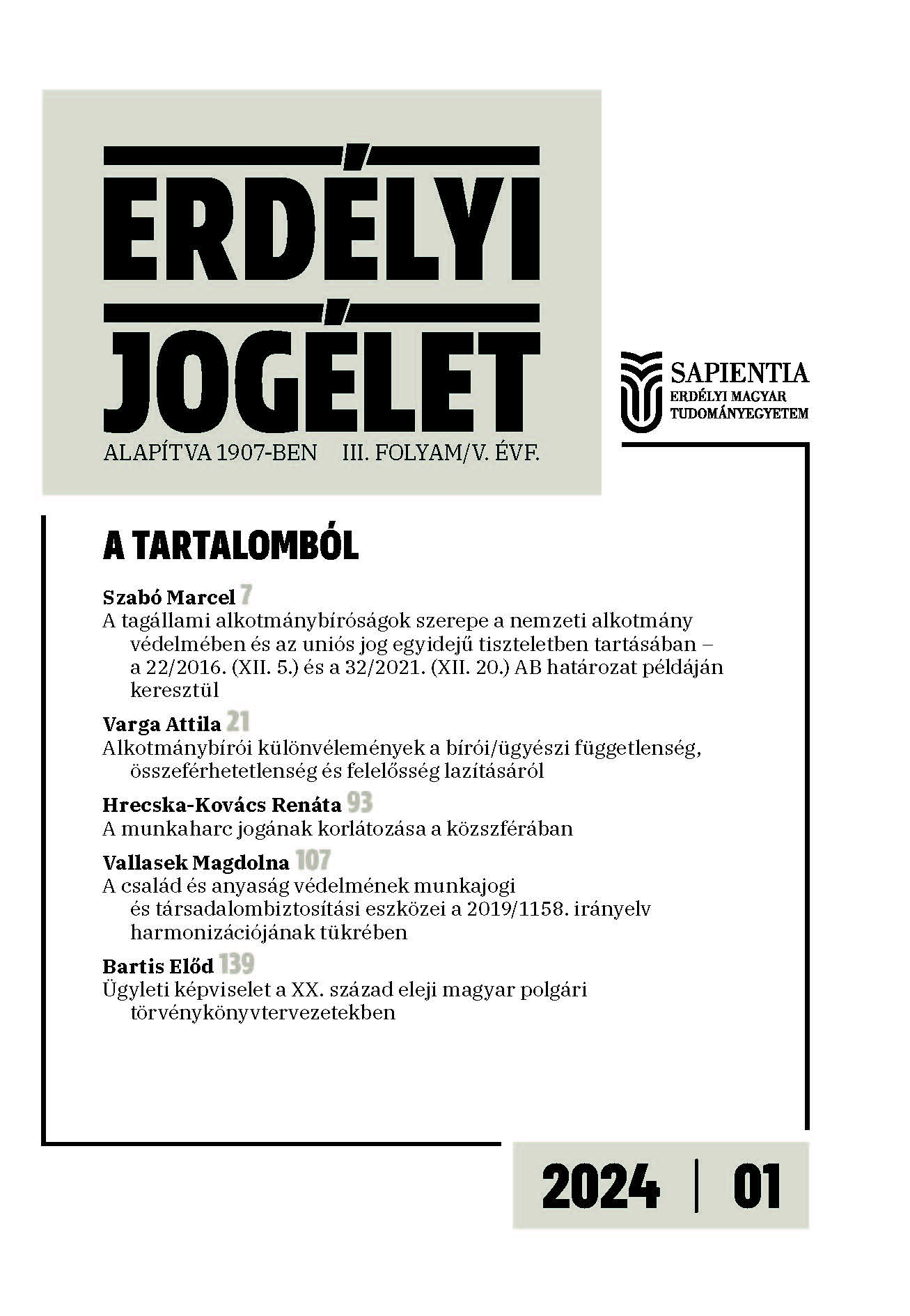
A tagállami alkotmánybíróságok szerepe a nemzeti alkotmány védelmében és az uniós jog egyidejű tiszteletben tartásában – a 22/2016. (XII. 5.) és a 32/2021. (XII. 20.) AB határozat példáján keresztül
According to the case-law of the Court of Justice of the European Union, the primacy of EU law has an absolute nature: the lowest rule of EU law can prevail over the highest (constitutional-level) rule of the Member States, while all questions of interpretation and validity of EU law fall within the exclusive jurisdiction of the Court of Justice of the EU. Over the past decades, national constitutional courts have attempted in various ways to break through the wall of reasoning of the CJEU. In the context of the present contribution, the two most relevant decisions of the Hungarian Constitutional Court, namely Decision No. 22/2016. (XII. 5.) AB and Decision No. 32/2021. (XII. 20.) AB, will be examined in the context of the relationship between national constitutions and EU law.
More...
